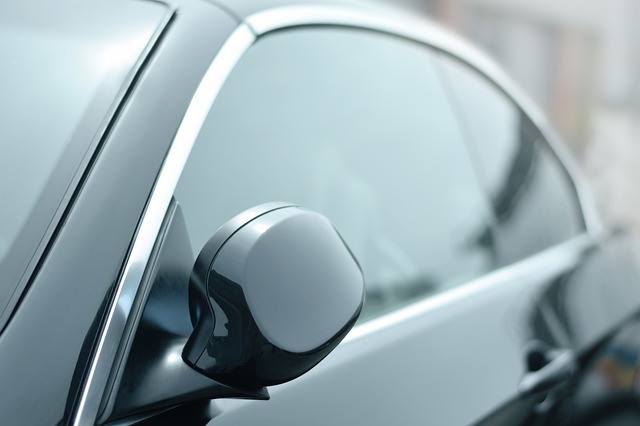Do you ever read about something in the news that gets your blood boiling? HB1147, currently in the NH House Municipal and County Government Committee, gets mine up to a thousand degrees. Don’t get me wrong; it’s a positive, simple, and logical piece of legislation that needs to be voted into law without hesitation, but the fact that such legislation is needed speaks volumes about the state of liberty and government overreach these days.
HB1147 prohibits a city, town, or village district from licensing a lemonade stand operated by a person under the age of 18. It is an amendment to RSA 31:102-a which applies to “Hawkers, Peddlers, and Vendors” and allows municipalities to “adopt, by ordinance or regulation, provisions for the licensure and regulation of itinerant vendors, hawkers, peddlers, traders, farmers, merchants, or other persons who sell, offer to sell, or take orders for merchandise from temporary or transient sales locations within a town or who go from town to town or place to place within a town for such purposes.” Lest you think we’re talking about just a “friendly reminder” here, think again: “Any person who violates any provision of such ordinance or regulation shall be guilty of a class B misdemeanor, and each continuing day of violation after notice shall constitute a separate offense.” The moment you don’t comply with bureaucrats in power, they start up with their threats and fines and escalate from there.
So why all the interest in lemonade? In case you haven’t heard, police across the country have been shutting down lemonade stands run by kids for years. It could be a coincidence, but the first reported case of a municipality shutting down a kid-run concession stand occurred in Salem Common, Taxachusetts on August 3, 2005 after a nearby sausage vendor complained to the police that a lemonade stand run by a 9-year-old and an 11-year-old was hurting his business. A county inspector in Maryland closed down a kids’ lemonade stand and fined their parents $500 on June 16, 2011. On April 16, 2012, city health officials in Hopkinton, Taxachusetts shut down the Westbury family stand that sold lemonade, cookies, and banana bread from the end of their driveway to spectators at the Boston Marathon and donated the proceeds to the Relay for Life anti-cancer charity. The official explanation was lack of a permit. On August 8, 2013, police in Queens, New York shut down a lemonade stand run by 9-year-old Nora and 11-year-old Jameala Lahoud also because they didn’t have a permit. On July 28, 2018, a New York State Health Department bureaucrat ordered a 7-year old to stop selling lemonade from a stand set up in his backyard in Ballston Spa, New York.
The list of “crimes” committed throughout the country goes on and on.
Why would anyone deny young people the opportunity to become budding entrepreneurs and learn life skills that encourage independence and self-reliance? A study in Educational Psychology Journal found that early youth engagement leads to future entrepreneurs. A Youth Impact Report in 2017 compared kids who had been involved in the national Lemonade Day program (which teaches children how to gain practical entrepreneurial experience by running a lemonade stand) to those who had not been involved. It found that 31% of the Lemonade Day kids are running their own businesses today while only 4% of the non-Lemonade Day kids are running their own businesses.
One father penned “3 Sales Lessons You Can Learn from a Simple Lemonade Stand” after observing what his own son learned from his lemonade stand: fearlessness, cross-selling, and understanding what your customer is really buying. Just ask Warren Buffett or Todd Graves, founder of Raising Cane’s Chicken Fingers enterprise, where they got their first taste of business smarts: selling lemonade. To most of us older folks, kids selling lemonade was a normal part of childhood on the way to adulthood. Today the growth of government—with its strangulating reach of the administrative state—has coincided with overwhelming efforts to extend childhood later and later and treat young adults like children. (In San Francisco, where I used to live, the voters actually passed a ballot measure extending “youth” benefits up to age 24.) Is it any wonder that there’s a whole crop of “youth” out there in colleges and universities who have been so overprotected by helicopter parents that they can’t deal with the normal responsibilities and stress of adult life and are justifiably called snowflakes? Clearly more children-run lemonade stands are needed, not less.
Another strange twist to this whole lemonade business is the bill only protects those under the age of 18. Aside from the fact that this is age discrimination—something that those who believe “there ought to be a law” for everything we say or do profess to be opposed to—what has age got to do with “public safety”? Isn’t “public safety” the justification for all these types of licensing, fees, and regulations? Is an adult more likely than a child to put arsenic in lemonade he/she is selling to the public? If not, then what’s the reason for the original law and now apparently the need to grant an exemption? It turns out “public safety” is the least of the real reasons for enacting such laws. It’s all about eliminating the competition, and that’s all it’s ever been or will be about. Occasionally the real truth slips out.
Police in Appleton, Wisconsin informed children that despite legally selling lemonade and cookies in their front yard during an annual city festival for the last 7 years, a new ordinance bans these sales in order to protect licensed vendors. In Denver police shut down a lemonade stand last spring run by two young boys who were raising money for Charity International because they didn’t have a permit that would have cost $30. And how did the police happen to notice their stand? They were “informed on” by a lemonade vendor at a nearby festival who was charging 10 times as much as the kids for a glass of lemonade. To me, this sounds a lot more like an extortion racket (“pay to play”) than “protecting” the public.
This brings up the whole question of government licensing and regulation. Don’t get me started! The explosion of licensing of jobs has reached epidemic proportions all over the country, and I am not happy to report that New Hampshire is doing poorly in this department these days. A cursory glance at what current bills state legislators are cooking up to license more jobs this year include art therapists; massage, reflexology, and Asian bodywork therapy; music therapists; pharmacy benefits managers, and locksmiths. At the rate they’re going, will the politicians soon be requiring licensing just to work at McDonald’s?
Lest you think I’m exaggerating how absurd the licensing-industrial complex has boomed these days, here are a few facts to ponder: 1) In 1950, only 5% of jobs required a license, but in 2020, it’s 30%–and getting higher all the time; 2) 37 states require a license just to shampoo hair in a salon; 3) Over 20 states require a license to paint houses; and 4) On average, emergency medical technicians require 120-150 hours of training to be licensed, but interior decorators need to complete 2,200 hours of training. Is there no end to this authoritarian paternalism? Do consumers really need to be treated as helpless children who can’t choose their own service providers based on reputation, word-of-mouth, and voluntary professional association certifications? Does a piece of paper issued by a government bureaucrat really guarantee that an individual or business is going to provide “safe” and sound service?
Another issue HB1147 broaches is local control versus central control. As a general rule, local control is the lesser of the two evils because, just as people differ, so can communities. Certainly urban, suburban, and rural folks tend to all have different political values and sensibilities, so as long as overreaching laws are kept local and not imposed on all communities, at least one can “vote with their feet.”
However, when laws are passed statewide or even nationally, then voting with your feet is less effective.
That said, tyranny is alive and thriving at the local level, and oftentimes the biggest violations of individual rights happen locally when power-hungry selectmen, and planning board and zoning board members throw their weight around and ignore property rights and constitutional protections. So, in this case, though it’s a state law that overrules local control, it does protect individual rights—though in a small way—and puts a harness on local busybodies, so it should get 100% support.
I will keep an eye on what happens with this bill. It was introduced on January 8, 2020 and referred to the Municipal and County Government Committee. It’s due out of committee on March 5, 2020, so let’s see what the politicians do with it. I can’t imagine any reasonable person opposed to this bill, but in politics anything is possible!
References:
- The Government War on Kid-Run Concession Stands
- Buy From a Lemonade Stand, Take a Stand for Freedom
- Op-ed: New law provides more freedom for kids to launch a lemonade business










